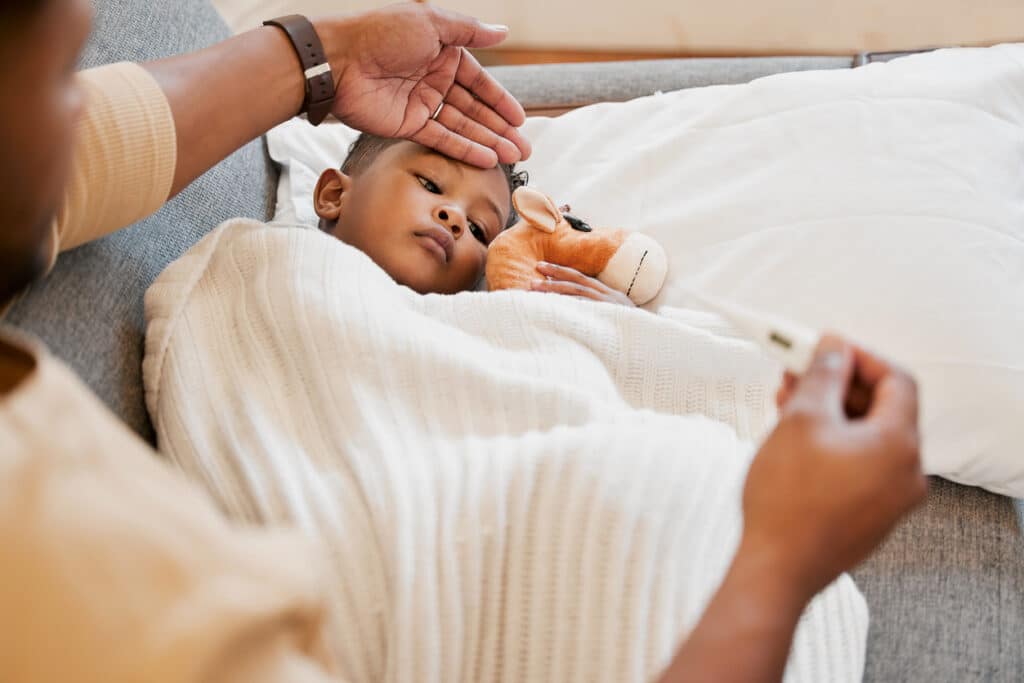You may associate hearing loss with things like aging or exposure to loud noise. However, certain viral illnesses can damage hearing as well, particularly in children.
Rubella (German Measles)

Rubella is transmitted through fluids like phlegm and saliva. If a mother is infected with rubella during pregnancy, her child becomes at risk of obtaining the congenital form of the virus. Hearing loss from rubella usually sets in between 6 -12 months. Symptoms include a red rash, low-grade fever, cough and runny nose.
Thankfully, rubella is relatively mild for most people and can be largely prevented as part of the MMR (measles- mumps-rubella) vaccine. In areas where vaccination is not largely available, rubella can still cause problems for infants who were infected in-utero.
In one study out of Bangladesh, 198 hearing-impaired children and 200 children without hearing problems were examined. The rubella antibody was detected in 74% of children with hearing loss compared to just 18% of those with normal hearing.
Cytomegalovirus
This virus, known as CMV, is responsible for most non-genetic cases of sensorineural hearing loss in infants and children. Symptoms can include a rash, jaundice, low birth weight, seizures and retinal damage. In many cases, CMV-infected child will develop hearing loss after their standard hearing loss screenings are finished. If your child has tested positive for CMV, monitor them closely for signs of hearing loss.
Measles
Measles and rubella can get confused, but they are not the same. Measles is generally much more severe. Symptoms include a rash of flat red spots, high fever, cough and runny nose. Before vaccines became widely available in the United States, measles was a common cause of hearing loss.
As opposed to the first two viruses, measles tends to cause hearing loss when being acquired later instead of being congenital. As with rubella, you can protect yourself and your children by making sure everyone is vaccinated against the illness.
If you or your child experiences symptoms of any of these viruses, find a Katy medical provider to quickly address the virus. While not all viral causes of hearing loss can be treated or prevented, taking the right precautions can increase the likelihood of a positive outcome.
To schedule a hearing test or seek hearing treatment, contact Today’s Hearing today to make an appointment with one of our trusted specialists.